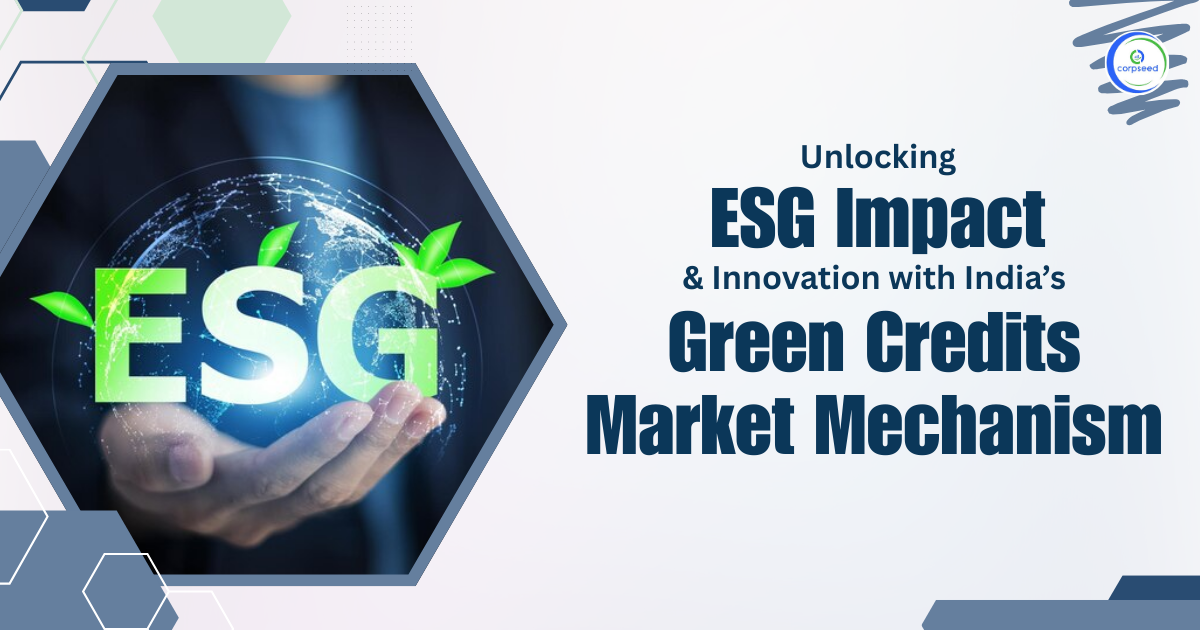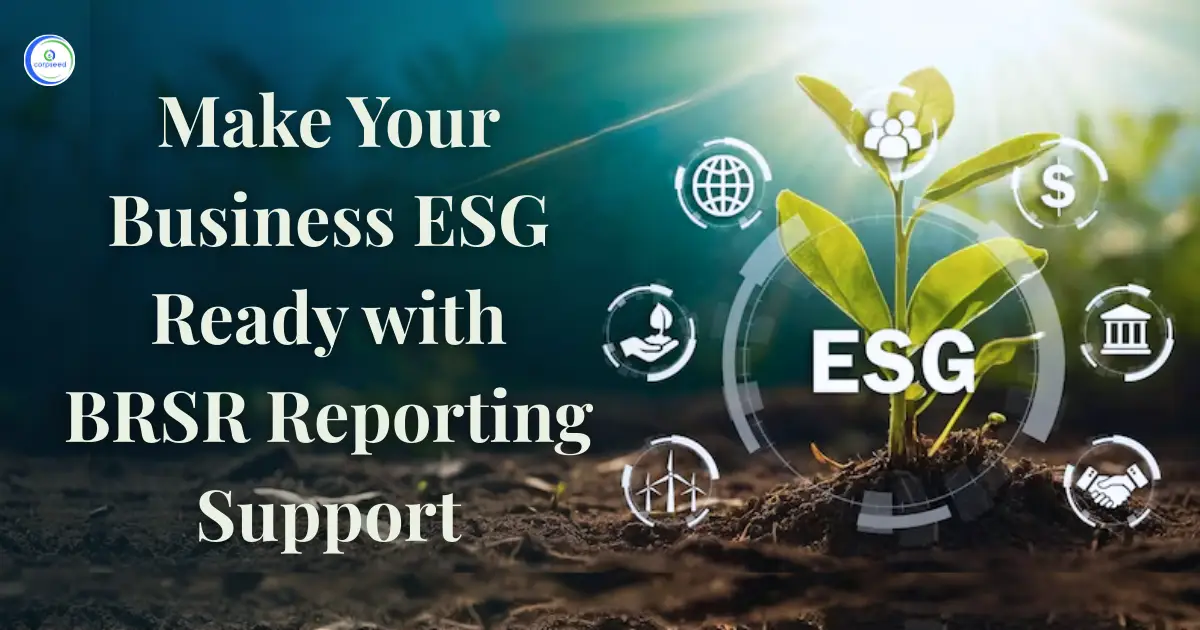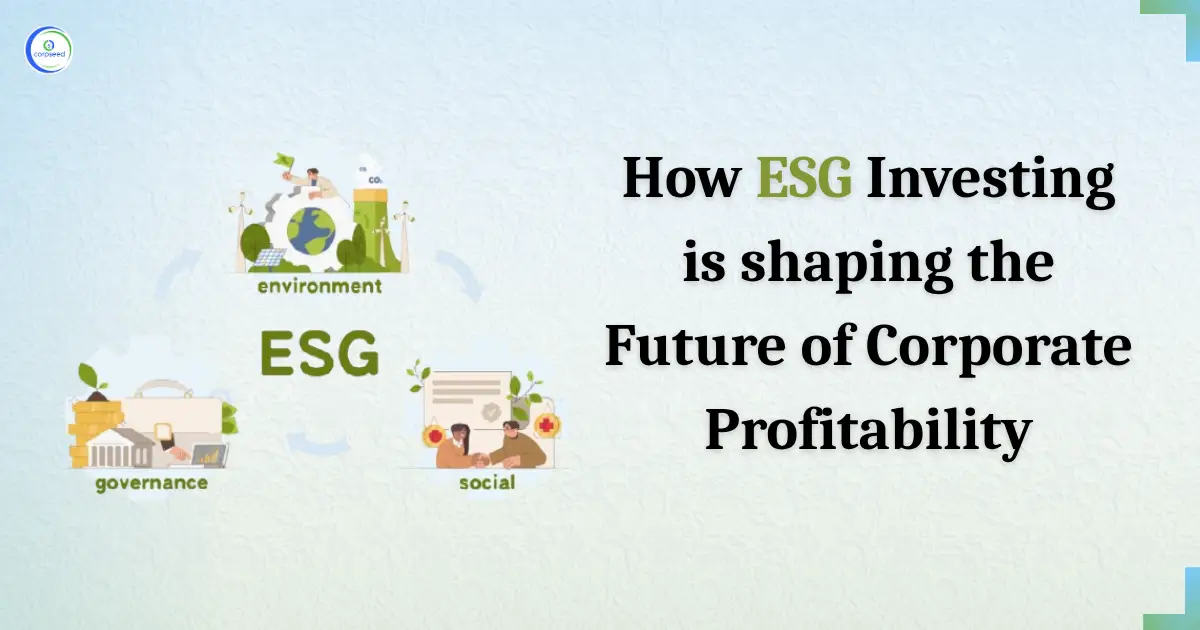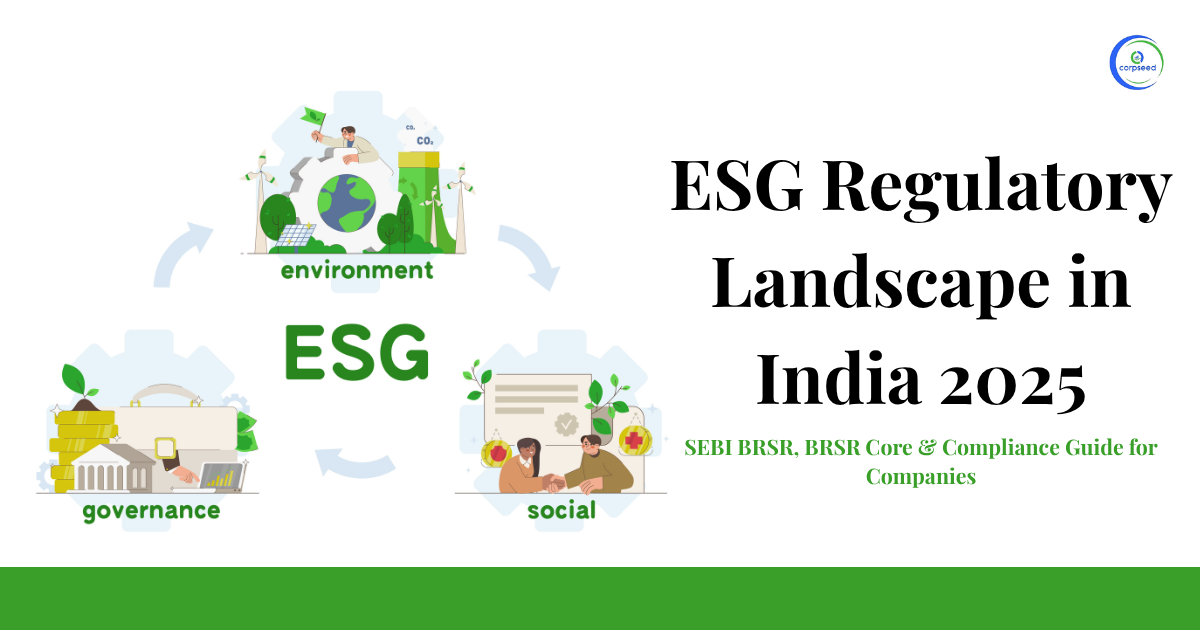Have you ever heard the term ‘ESG Sustainability Performance Metrics’? Or wondered about its significance in today’s world? If yes, then this article can be an enlightening read for you. The best way to start is with the definition. ESG Sustainability Performance metrics, or we can say, ESG metrics are nothing but a set of criteria used worldwide to assess how a company is performing in terms of sustainability and social responsibility. Being famous among today’s investors, financial organizations, and other stakeholders, ESG comes in handy to understand the risks and opportunities to gain associated with a company’s activities. Someone might ask, “Okay, that’s good. But what’s the benefit of that?” Well, these help people make a better decision about whether to invest and associate with that company.
Table of Contents
--------------Blog Contact Form-------------
In recent years, the ESG metrics have seen a new wave of growth in the country as more and more stakeholders and investors are understanding the significance of sustainable development and social responsibility, especially when the erratic climatic fluctuations are so evident. The fact that many investors take in to use ESG Sustainability Performance metrics to get potential investment opportunities, and financial organizations are integrating them into their risk management processes signifies that they can be the next big thing.
ESG Sustainability Performance Metrics
ESG sustainability performance metrics not only help investors but also the companies manage long-term risks and opportunities. To understand this better, think of a company that with the ESG metrics can determine where it stands on environmental performance. This can help it in two ways, first, it will be able to make its operations efficient and sustainable, alongside ensuring they comply with the regulatory framework. And second, this can provide it with immunity to the risks associated with climate change.
So, what does ESG stand for? Well, E in ESG refers to Environmental, S refers to Social, and G refers to Governance. Now, let’s discuss them briefly one by one.
Environmental
Environmental criteria of ESG metrics assess the activities of companies that can affect the environment in one way or another. In simple terms, it evaluates the environmental impact of an organization, including what corporate climate strategies it has, how much waste it generates and ways to handle it, the level of pollution it’s responsible for, its contribution towards the preservation of biodiversity, whether its operations comply with the environmental laws, such as EPR and the list goes on.
Social
Social criteria of ESG assess the relationship between a company and its employees and society as a whole. In more simple terms, we can say it evaluates the way a company treats the people that work for it and the community in which it operates. The factors that play a significant role here are the enforcement level of labour practices, human rights, a collaboration between the community members and the company’s decision-makers, and commitment to ethical business practices. Companies that meet social criteria are often found to be promoting socially and ethically conscious practices such as diversity, inclusion, initiatives for the welfare of the community, social justice, and corporate ethics.
Governance
The governance criteria of ESG basically assess the way an organization manages its internal structure and its policies to handle any risk, ensure transparency, and apply ethical standards. These criteria make sure an organization has simplified and clear accounting methods and follows the “Greatest Good for the Greatest Member” philosophy while selecting all the major leadership roles. Often ESG investors look for organizations that avoid conflict of interest while filling the roles, such as senior executives and managers, and don’t engage in political activities to get any unfair advantages over others.
Read Our Blog: What is Environmental, Social, and Governance (ESG)?
Importance of ESG Metrics
Now that you know what ESG sustainability performance metrics are, it’s time to look at the reasons that make ESG metrics important for both investors and companies.
- Better Risk Management
Today, companies often find it difficult to deal with the risks related to environmental and social issues, which can range from changing climate to complying with the prescribed regulations. Here, the integration of the ESG metrics and the existing risk management can ease this burden for the company. ESG metrics can lead to timely reporting of the rising sustainability risks and confirms whether the company has the skills, knowledge, and expertise to deal with them.
- Enhance Brand Credibility and Image
Just put yourself in the shoes of investors and question where you would like to invest. The answer of many would surely be in the company which has a good reputation in the market and the customers trust its products and services. And now, what can help a company build this kind of image? For starters, being socially and environmentally responsible is the best and here, ESG sustainability performance metrics can play a significant role.
- High Employee Retention Rate
People, in general, like to contribute their part for the betterment of the environment and society as a whole and companies showing commitment to ESG metrics can help them do that. Here, the benefits go both to parties as the employee would get the satisfaction and the company would be able to attract and retain the best talent, which would eventually lead to better efficiency and productivity.
- Compliance with the Prescribed Regulations and Norms
Every organization in the country is bound to operate as per the regulations that the Indian government has put in place, including EPR, and waste management, and the violation of these can invite legal troubles or shutdown of the operations. By keeping a close watch on the ESG metrics, an organization can not only ensure it conforms with the laws but also save itself from any unnecessary legal hassle. In case you need any assistance with that, Corpseed ITES is available for you. Being India’s top environmental, legal, and business consultancy service provider, Corpseed ITES can help you comply with the laws and avoid any legal hassles.
Read Our Blog: ESG Reporting: What are ESG and Sustainability Report?
Common ESG Metrics To Track
Often investors or investment firms, who take ESG sustainability performance metrics into account, set their priorities as they fit. However, this is partially true as they all do have a few common ESG metrics, which we have mentioned below as per the three specific categories - Environmental, Social, and Governance.
Environmental
- Publication of Sustainable Reports to disclose the company’s ESG goals and the strategies to achieve them.
- Practices to bring down the production of harmful pollutants and chemicals.
- Efforts to reduce the emission of greenhouse gasses and carbon footprint.
- Promotes the usage of renewable energy sources, such as solar power.
- Effective Waste Management System.
- Steps to preserve the country’s biodiversity and reduce deforestation.
- Water conservation
Social
- Ethical Supply Chains are in place to ensure the ethical treatment of the employees and the environment.
- Against employing child labor of below legal age.
- Embraces the rights of the LGBTQ+ community and ensures diversity and inclusion in the workplace.
- Strict policies and measures are in place against any sort of sexual abuse.
- Pays as per the concept of “Fair Wages.”
- Health and safety standards at the facilities for employees.
- Compliance with product safety regulations.
Governance
- Promote diversity while electing board members and chief executive officers.
- Transparency in the operations.
- Clear and to-the-point accounting methodologies.
- Secures the rights of shareholders.
- Against any lobbying activity.
- Strong Investor relations.
- Avoids conflict of interest
Read Our Blog: What is Environmental, Social, and Governance (ESG) Investing?
Conclusion
At last, ESG metrics are nothing but criteria that help investors all over the world to find the companies that take care of environmental, social, and government standards. At the same time, they help investors in decision-making by telling them the opportunities and risks they can have by engaging with a specific company. Besides these, ESG standards also help companies operate in a better way in the country. With this article, we have tried our best to explain everything there is to know about ESG sustainable performance metrics and hoped the given information would prove to be helpful to you.
Read More:
EPR Certificate, Waste Management, BIS Registration, ISI Registration, ESG Reporting, E-waste Plant Setup, Plastic Waste Plant Setup, Drug License, CDSCO Registration, EPR in E-waste Management, EPR in Battery Waste Management, EPR in Plastic Waste Management, EPR in Tyre Waste Management, Import and Export Code
ESG
ESG refers to environmental, social, and governance factors considered by companies when managing their operations, and investors when making investments, in respect of the risks, impacts, and opportunities.
Environmental and Social Due Diligence
Environment and Social Due Diligence (ESDD) is a management tool used to identify the social and environmental aspects of any business that plays an important role in decision making process prior.
Environmental and Social Management
An Environment and Social Management System is a collection of procedures and techniques used to consistently carry out an organization's policies in order to achieve its business goals.
This portion of the site is for informational purposes only. The content is not legal advice. The statements and opinions are the expression of author, not corpseed, and have not been evaluated by corpseed for accuracy, completeness, or changes in the law.
BOOK A FREE CONSULTATION
Get help from an experienced legal adviser. Schedule your consultation at a time that works for you and it's absolutely FREE.









